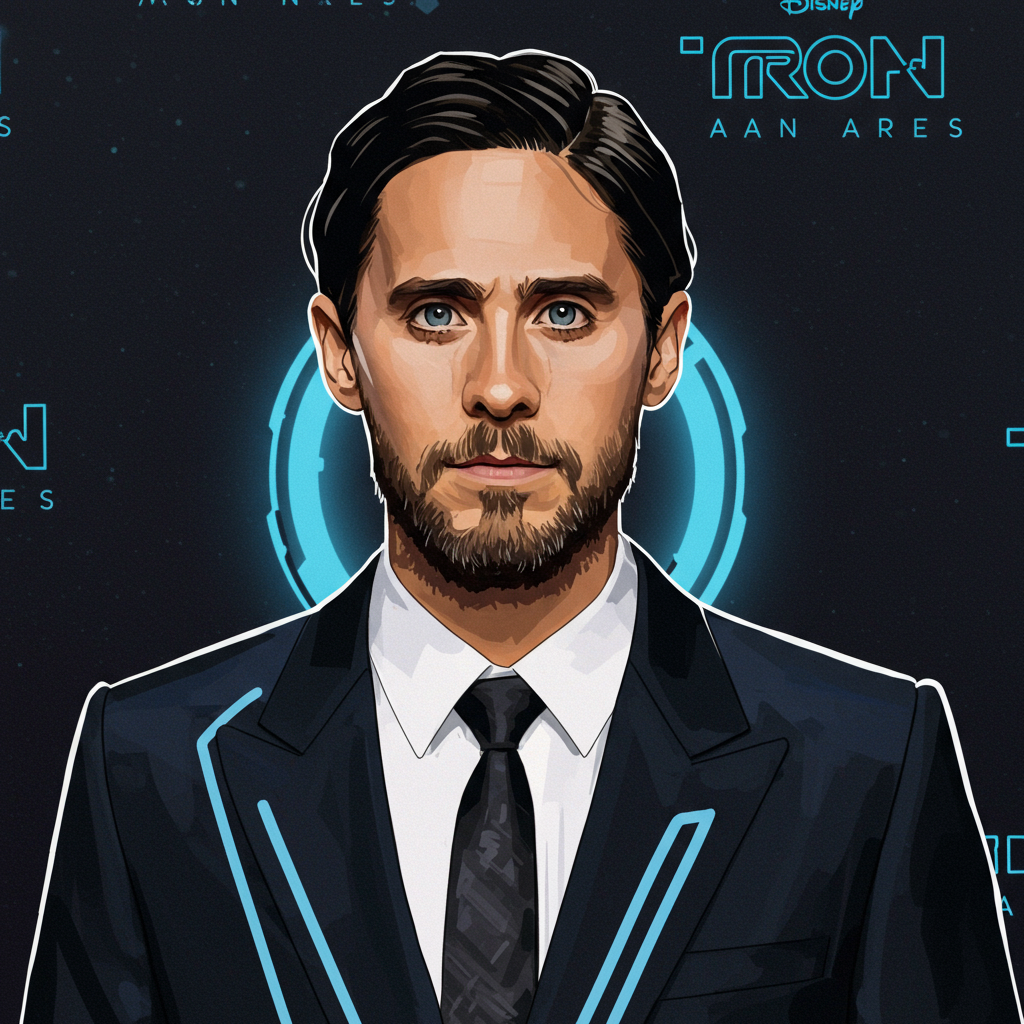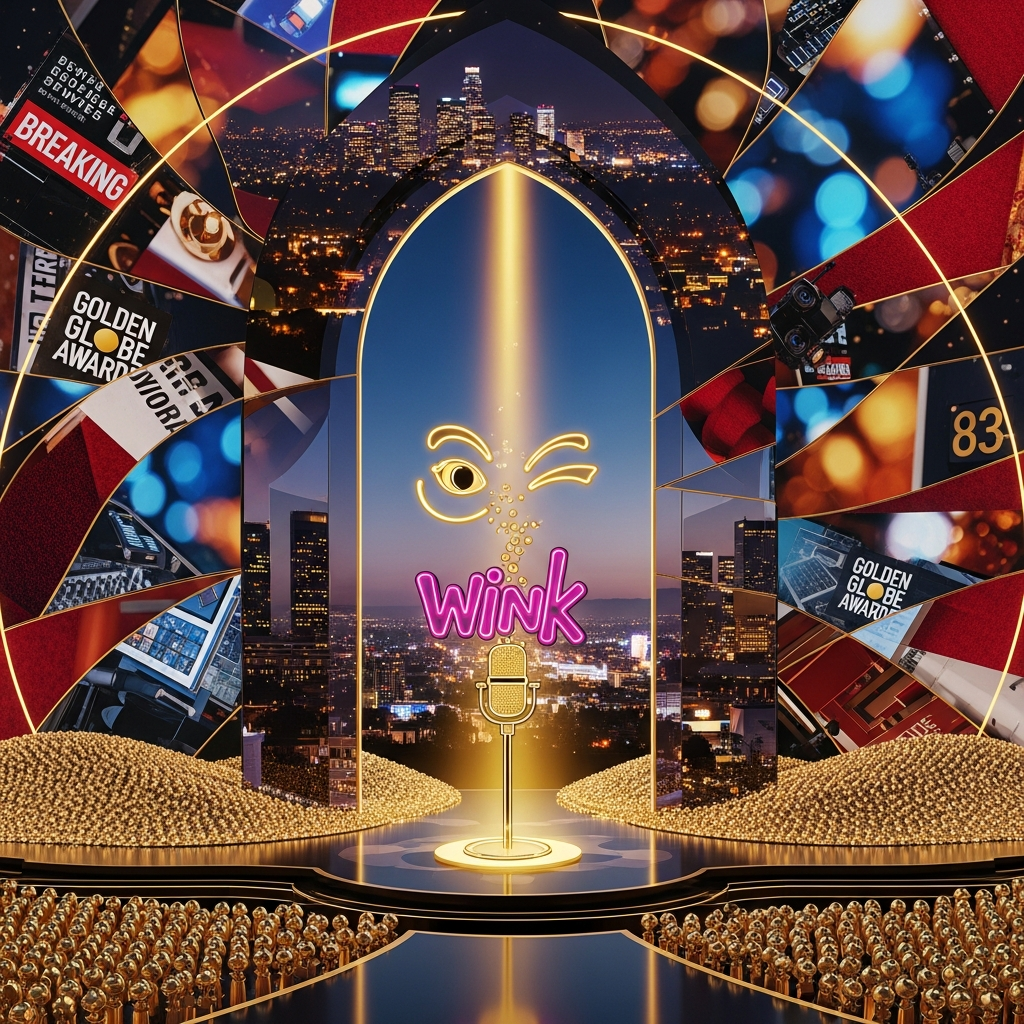The digital frontier just got a powerful upgrade. Disney’s highly anticipated sci-fi action epic, Tron: Ares, recently stormed the red carpet with its star-studded world premiere in Los Angeles. While official critic reviews are on the horizon, the initial social media buzz is electrifying. Early reactions paint a vivid picture of a film that pushes visual boundaries, delivers an “all-timer” soundtrack, and dives deep into contemporary themes of artificial intelligence.
Set to hit theaters on October 10, Tron: Ares marks the third thrilling installment in the revered Tron franchise. This latest chapter promises an intense journey from the digital Grid into the human world. Audiences are keen to discover if Jared Leto, leading a dynamic cast, can usher this beloved series into a new era of cinematic excellence. The early word offers a compelling, albeit mixed, preview of what awaits.
A Visual and Auditory Feast: IMAX Immersion and a Mind-Melting Score
From the moment the lights dim, Tron: Ares immediately distinguishes itself as a breathtaking audiovisual spectacle. Initial reactions are unanimous: the film’s visuals are nothing short of stunning. Critics have lauded its “visually astounding” and “extraordinary” aesthetics, describing them as “slick, radical & eye-popping.” Many reviewers emphasize that this is an IMAX-must-see experience, praising its immersive 3D and expansive imagery. It’s been heralded as featuring “some of the best 3D I’ve seen in a decade” outside of the Avatar films.
Contributing significantly to this sensory overload is the phenomenal soundtrack composed by Oscar-winning duo Trent Reznor and Atticus Ross of Nine Inch Nails. The score has garnered overwhelming acclaim, frequently cited as the film’s “saving grace.” Described as “mind-melting,” “propulsive,” and even “new club classics,” the music “absolutely rips” and “goes so hard.” It’s more than background; the Nine Inch Nails score becomes “a character unto itself,” injecting considerable adrenaline into every scene. Jesse Wigutow penned the script, while frequent David Fincher collaborator Jeff Cronenweth handled cinematography, further elevating the film’s distinctive look.
The Evolution of Tron’s Aesthetic
The Tron franchise has always been a pioneer in visual storytelling. The original 1982 film, despite moderate box office success, achieved cult status for its groundbreaking visuals. Joseph Kosinski’s 2010 sequel, Tron: Legacy, continued this tradition, earning accolades for its stunning aesthetics and a memorable soundtrack by Daft Punk. Tron: Ares appears to carry this torch forward, with critics noting its visuals offer a “marked upgrade” from its predecessor. The film is praised for a “visceral handle on the action,” integrating more practical stunts and “stepping outside the grid into reality,” reducing reliance on green-screen effects that sometimes hampered earlier entries.
Exploring a Topical Narrative: AI, Humanity, and the Digital Divide
At its core, Tron: Ares delves into a highly topical story about humanity’s interaction with artificial intelligence. Jared Leto stars as Ares, a sophisticated AI program. He embarks on a pivotal journey, leaving the digital realm to complete critical missions in the real world. This premise alone sets the stage for thought-provoking explorations of identity, sentience, and the blurring lines between digital and physical existence.
While the film’s visuals and soundtrack receive near-universal praise, the narrative itself has elicited a more mixed response. Some critics found the story “simple,” “basic,” and at times “emotionally empty,” suggesting it “never digs deeper than the surface” of its AI tropes. Terms like “vapid and inept storytelling” and a “hollow” plot emerged in some critiques. However, others found the AI-driven plot “surprisingly compelling/relevant,” appreciating its forward-looking perspective. It’s suggested that the film “holds back on deeper mythology for new fans,” potentially making it more approachable for newcomers to the Tron universe. The overarching plot involves a corporate rivalry, with Greta Lee’s character Eve Kim, CEO of ENCOM, attempting to complete her late sister’s work on a crucial “permanence code.” This code would allow digital entities to exist beyond limited lifespans, making her a target for rival tech mogul Julian Dillinger (Evan Peters) and his AI soldiers, including Ares.
Star Power: Performances Under the Spotlight
The ensemble cast of Tron: Ares features a blend of established talent and fresh faces. Greta Lee, in particular, has been singled out for her standout performance as Eve Kim. Critics suggest she “steals the show,” “grounds the neon spectacle,” and is a “fantastic” presence. Evan Peters, portraying rival CEO Julian Dillinger, is described as an “incredible as a villain” with a “god complex.” Jodie Turner-Smith’s portrayal of Athena, Ares’s second-in-command and a formidable antagonist, is praised for her “fierce villainy.” Gillian Anderson provides an authoritative presence as Julian’s savvy mother. Even Jeff Bridges reprises his legendary role as Kevin Flynn, with a brief but notable appearance, looking his actual age and providing a poignant link to the franchise’s past.
Jared Leto’s central performance as Ares has drawn varied reactions. Some describe his portrayal as “freaking badass” and “perfectly awkward” as the program navigates human emotions and the real world. His performance is noted for a “refreshingly subdued” and “Zen countenance,” along with a surprising appreciation for ’80s synth-pop. However, other critiques mention a “charisma vacuum” and distracting ADR, suggesting a nuanced take on his character.
Action-Packed Thrills and Franchise Legacy
Norwegian filmmaker Joachim Rønning, known for Pirates of the Caribbean: Dead Men Tell No Tales, directs Tron: Ares. The film is consistently described as “pulse-pounding,” “non-stop, action-packed,” and an “absolute rush.” It boasts “more practical stunts and more epic sci-fi action,” solidifying its status as the “most action-packed chapter yet.” A highlight mentioned is a “thrilling” high-speed freeway chase featuring Eve on a motorcycle pursued by Ares and Athena on light cycles, paying homage to industrial designer Syd Mead’s iconic designs.
Tron: Ares skillfully riffs on the franchise’s mythology and iconography while forging its own path. It’s presented as a separate story rather than a direct sequel, making it “extremely approachable for those unfamiliar with the previous films.” This balance of honoring the past and looking forward could position it as a “modern sci-fi masterpiece” for both new and old fans.
A Glimpse of the Future: Optimus Robot on the Red Carpet
Adding a unique and thematically relevant touch to the premiere, Tesla’s Optimus humanoid robot made a surprise appearance. A viral clip showed Optimus standing face-to-face with Jared Leto, even performing martial arts moves. This real-world interaction between a star of an AI-centric film and an advanced humanoid robot provided a captivating promotional spectacle, underscoring the movie’s central themes about the interaction between AI and reality. Tesla CEO Elon Musk himself highlighted the event, linking the real-world advancement to the sci-fi narrative.
The Verdict So Far: Style Over Substance, But What Style!
Overall, Tron: Ares is emerging as a cinematic experience defined by its breathtaking visuals and phenomenal soundtrack. While the narrative depth has drawn some mixed responses, the film’s technical prowess, action sequences, and strong ensemble performances – particularly Greta Lee’s – appear to deliver a captivating sensory journey. It’s a “good time” and an “audiovisual spectacle” that many critics recommend experiencing on the biggest screen possible. Despite some reservations about the story, the consensus points to a highly enjoyable film that could redefine the Tron legacy for a new generation.
Frequently Asked Questions
What are the key takeaways from early Tron: Ares premiere reactions?
Early reactions to Tron: Ares highlight it as a visually spectacular film, often deemed an “IMAX-must-see,” featuring stunning aesthetics and immersive 3D. The Nine Inch Nails soundtrack by Trent Reznor and Atticus Ross is overwhelmingly praised as “mind-melting” and a major highlight. While the visuals and sound receive universal acclaim, the narrative has garnered mixed feedback, with some critics describing it as “simple” or “emotionally empty,” while others found its AI themes “compelling.” Performances by Greta Lee and Evan Peters are notably strong.
Why do critics highly recommend seeing Tron: Ares in IMAX?
Critics strongly recommend seeing Tron: Ares in IMAX due to its exceptional visual presentation and immersive auditory experience. The film’s aesthetics are lauded as “visually astounding” and “extraordinary,” with some reviewers calling it the best 3D they’ve seen in a decade. The Nine Inch Nails score is designed to be felt as much as heard, becoming a character itself. IMAX screenings are crucial for fully appreciating the intricate digital landscapes, propulsive action sequences, and the powerful “mind-melting” soundtrack, making it a true sensory spectacle.
How does Tron: Ares approach its AI themes, and what is Jared Leto’s role as Ares?
Tron: Ares delves into highly topical AI themes, exploring mankind’s first encounters with advanced artificial intelligence as the lines between digital and real worlds blur. Jared Leto stars as Ares, a sophisticated AI program who leaves the digital realm for dangerous missions in the human world. His character develops emotions and questions his existence, creating an “emotional hook” for the story. Leto’s performance has been described as “refreshingly subdued” and “perfectly awkward” as Ares learns about humanity, though some critics had mixed feelings about its overall impact.




